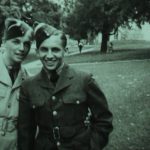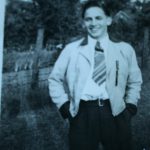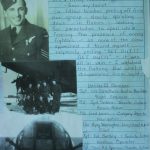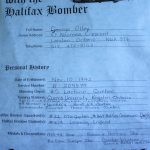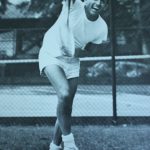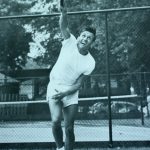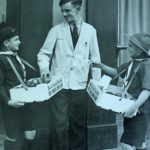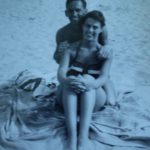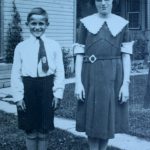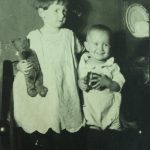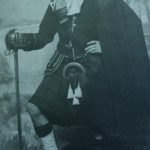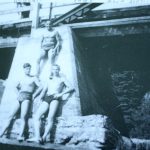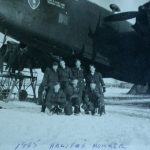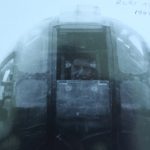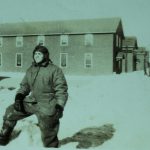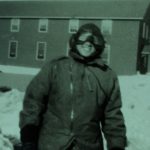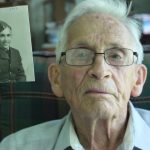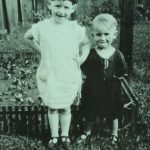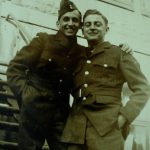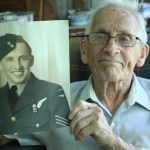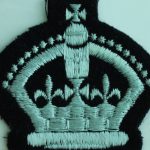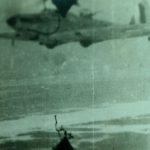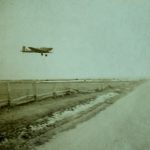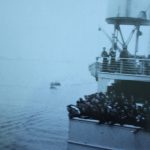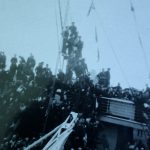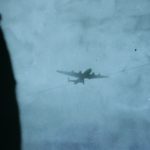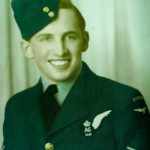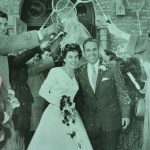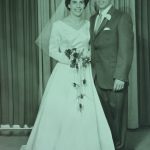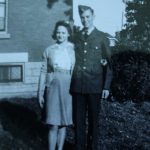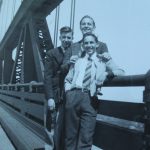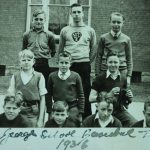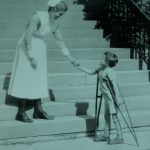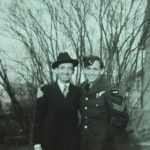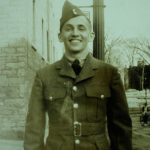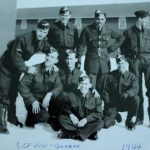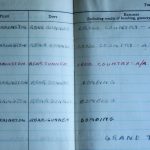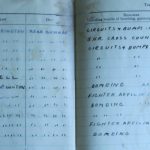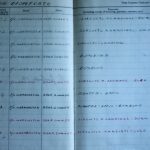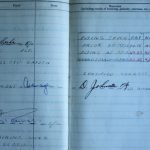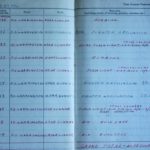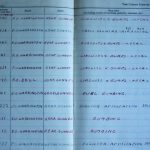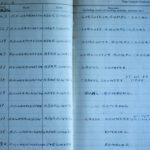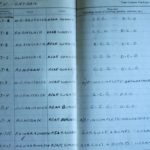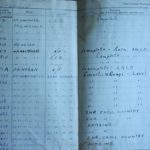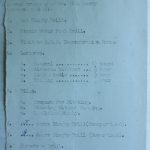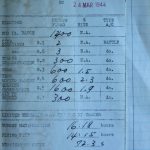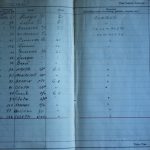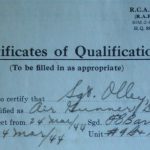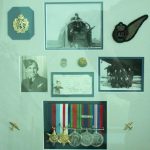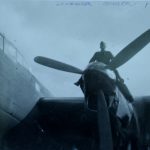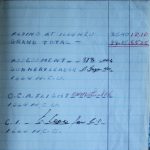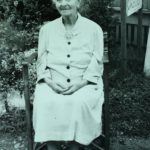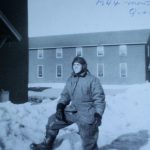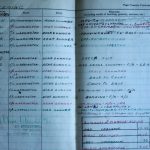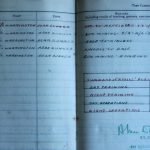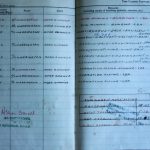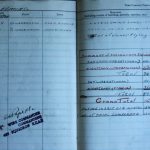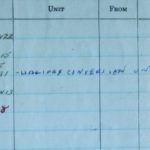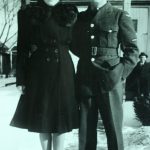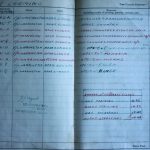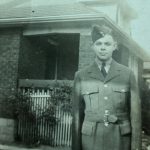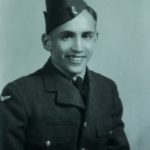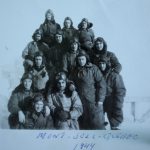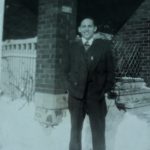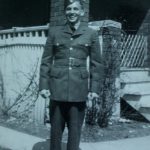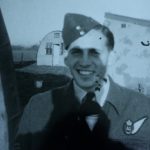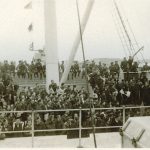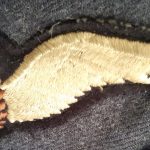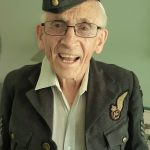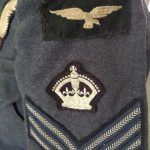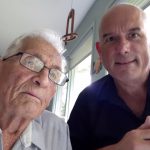George Olley was born May 10, 1925 in London, Ontario. George’s parents divorced when he and his sister were quite young, and for a time George and Rose lived with their father, but work and family proved a difficult combination, and George ended up in an orphanage from age 9-14. He went to school during this time, playing sports and learning his way around the playground. By the time the war came, George left school early, taking up war work at Fleet Aircraft. When he turned 171/2 George enlisted in the RCAF, and he was sent to Manning Depot in Lachine, Quebec. From there he began his stint in the British Commonwealth Air Training Program, going from Lachine to Kingston to Guelph and Mont Joli, where he completed his gunnery training. With training under his belt, George made his way to Halifax, and the troopship got the men to Scotland. There they trained for the larger aircraft, beginning with the Wellington, where George chose to be the rear gunner, one of the most dangerous positions – and something he attributes to his tendency to be a loner. Soon after the men crewed up, and George was off to Leeming, where he joined 429 Squadron, flying Halifax bombers on missions over occupied Europe. George’s crew had a few close calls; once George was waiting on the order to bail out when the navigator found a base in France where they could safely land. He flew 13 missions during his time overseas, and when the end of the European war came, George volunteered for the Pacific. He returned to Canada in June 1945, and after a time in London, he reported to base on the east coast, but the atomic bombs ended the war before he could be shipped out. Back in London, George moved in with a friend’s family and started to rebuild, finding his passion in tennis and badminton, where a tournament led to his meeting his future wife. Together they fell into the rhythms of postwar Canadian life, making their home in London, Ontario. George Olley was interviewed for this project in August 2019, when Scott Masters visited him in his home in London. We thank the Memory Project for their role in facilitating this meeting. We were able to meet George a second time at Parkwood Veteran Centre in London in October 2024.
Videos
Click next video below to keep watching
- 1. Early Life in London, Ontario
- 2. The Orphanage and the Great Depression
- 3. Joining Up
- 4. Gunnery School; Going Overseas
- 5. Churchill; Early Military Experiences
- 6. Arrival in Scotland; The Crew
- 7. 429 Squadron
- 8. First Ops
- 9. Overseas Memories
- 10. Final Missions
- 11. VE Day; Return to Canada
- 12. The End of the War; Postwar Thoughts
